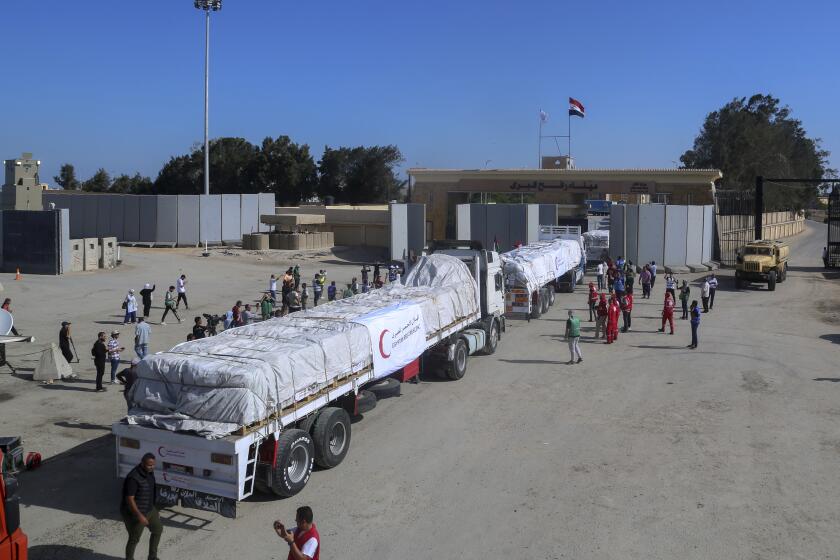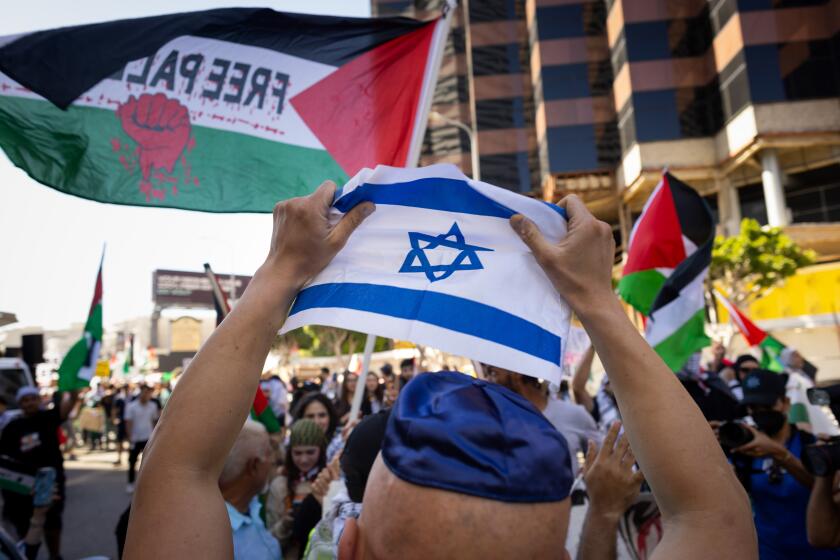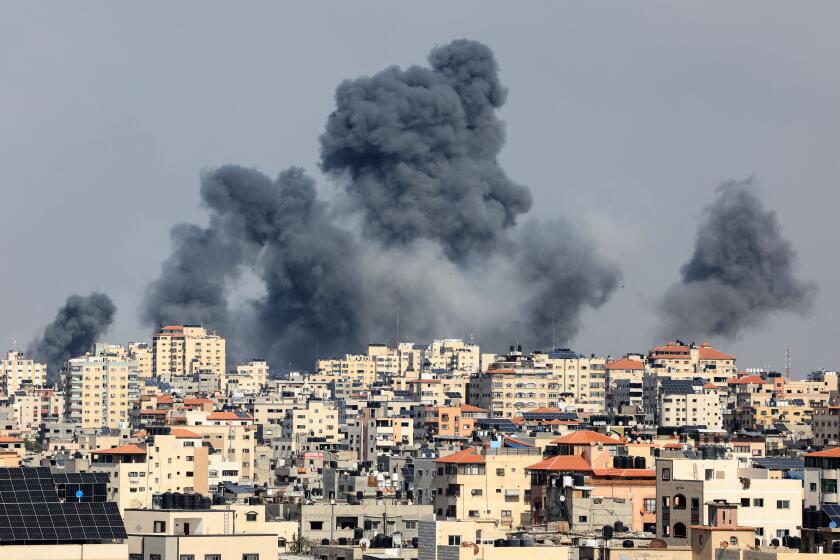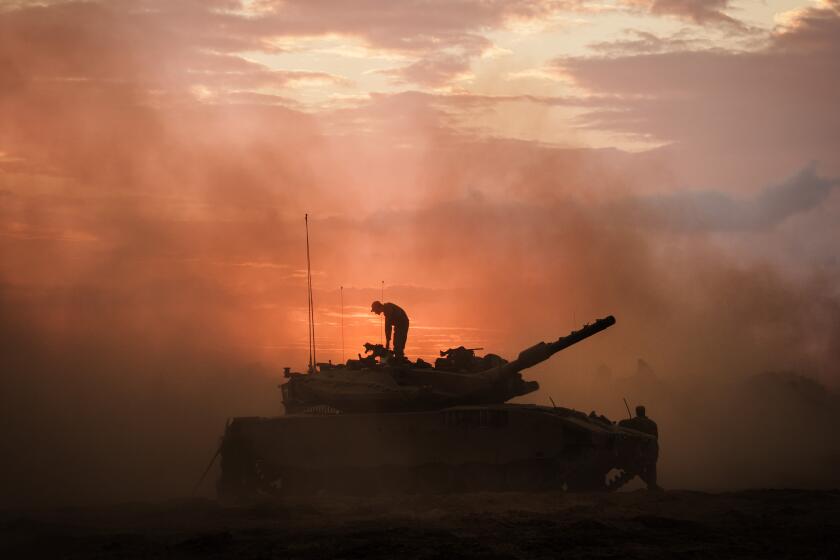Opinion: My beloved Gaza of crowded markets and vibrant cafes is gone, demolished and a place of grief
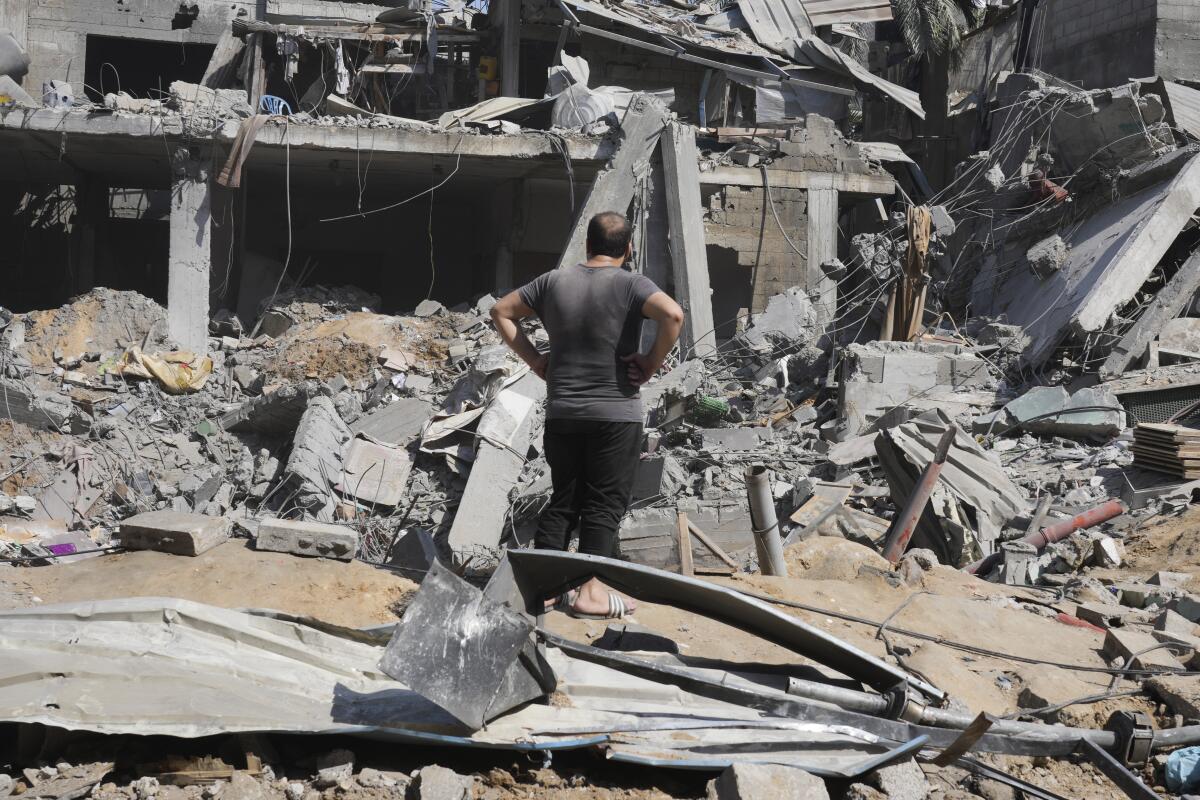
- Share via
A mere two months ago, we had the rare privilege of visiting our family in the Gaza Strip, a place I’ve always romanticized despite the more than 16-year-long blockade, preceded by 55 years of Israeli military occupation.
Even though we were displaced to Gaza as refugees from Ashkelon, it still represents home to me. As a Palestinian American who holds a Gaza ID, I can’t enter Gaza through Israel and I can’t exit without Israel’s permission.
One big obstacle is that Israeli bombs are still raining down on Gaza. Another is that Israel is wary of inadvertently fueling Hamas.
This summer, not sure if it would be my last visit for a long time, I relished the simple pleasures Gaza had to offer. Vibrant cafes buzzed all day. Evenings were filled with family and laughter by the Mediterranean beach.
We took memorable road trips with young nieces and nephews. My young daughters indulged in horseback riding lessons, music classes and traditional Palestinian dabke dances at summer camp. We savored seafood, fresh bread and Instagram-worthy cafe dishes with a Gazan twist. We found deep spirituality in historic mosques, surrounded by humble, grateful people.
Amid the bustling markets and notorious traffic, the faces of family members, who can’t visit us in the U.S., made our visit special, even though life in Gaza is subject to a siege imposed by Israel and condemned as illegal by the United Nations and the majority of human rights organizations.
Our close connection does not mean we agree on all aspects of the catastrophic situation in the Middle East. But the path to peace starts by not selectively grieving only those with whom we share religion or national origin.
These were my Gaza memories before everything changed on Oct. 7, when an attack on Israel resulted in unimaginable grief for Gazans who are caught in the crossfire.
Nearly half of Gaza’s 2.2 million population, more than a million of whom are children, are displaced once more. Blocks upon blocks of homes are being reduced to rubble. An already scarce water supply has dried up. Endless queues for essentials stretch for hours. Overcrowded shelters mean an hour’s wait for a shared, dirty toilet.
As Israel is poised for a ground invasion of Gaza, and bombing continues, people fear that the goal is to empty the place of Palestinians.
My sisters are taking refuge north of Gaza City in a hospital and a school operated by the United Nations Relief and Works Agency for Palestine Refugees, but no place in Gaza is safe.
In a recent phone call with my mom in Gaza, a deafening explosion shook my phone speaker. The noise over the phone was so alarming that my wife, Roa, rushed downstairs fearing I’d been injured.
My mother and the rest of my family members eventually ventured out into the street in northern Gaza, not knowing what to expect. This time, they were met by their neighbors, whose lifeless bodies dangled outside the building, limbs scattered about.
Both Israelis and Palestinians have alternately been victim and aggressor in this conflict. It’s easy to pass judgment from the outside on choices that now seem impossible to reverse.
My mother was shocked yet moved by the courageous young Palestinian men who rushed to assist, covering and evacuating those who might still have a chance to survive into an ambulance. That family was one of the poorest in the neighborhood and caring for children with special needs.
Palestinians can no longer hope to be spared from the horrors unfolding around them. Conditions have become so horrifying that my 5-year-old niece, Nour, who just started kindergarten a few weeks ago, now recites prayers that seem beyond her years, reminiscent of an adult’s devotion. When this latest round of violence started, her primary concern was safeguarding her dearest possession, her kindergarten backpack with its colorful erasers.
What’s happening in Gaza — the rampant destruction of physical landmarks and countless families — is also erasing the cherished memories we once held of this place. Last night my family’s neighborhood was bombed, I haven’t heard from them yet.
Will this cruelty ever end? I don’t know.
“We’re going to turn [Gaza] into a parking lot,” a U.S. congressman said on Fox News recently. Right now, it feels as though we’re halfway there. Half the houses are already gone.
The Gaza you see on TV and social media videos is not the Gaza that my family or I recognize. That Gaza, the one I love, is gone.
To salvage what remains, to avert an even graver disaster and to reignite hope, I implore President Biden and the international community to truly see Gaza’s plight, seek an end to the bombing, starting with a ceasefire, and provide more humanitarian assistance so that Gaza can live.
Hani Almadhoun is director of philanthropy at UNRWA USA, an independent nonprofit organization supporting the humanitarian work of the United Nations Relief and Works Agency for Palestine Refugees in the Near East.
More to Read
A cure for the common opinion
Get thought-provoking perspectives with our weekly newsletter.
You may occasionally receive promotional content from the Los Angeles Times.
